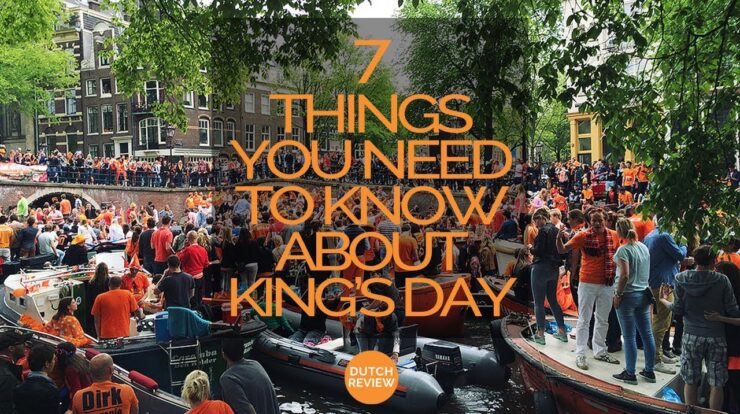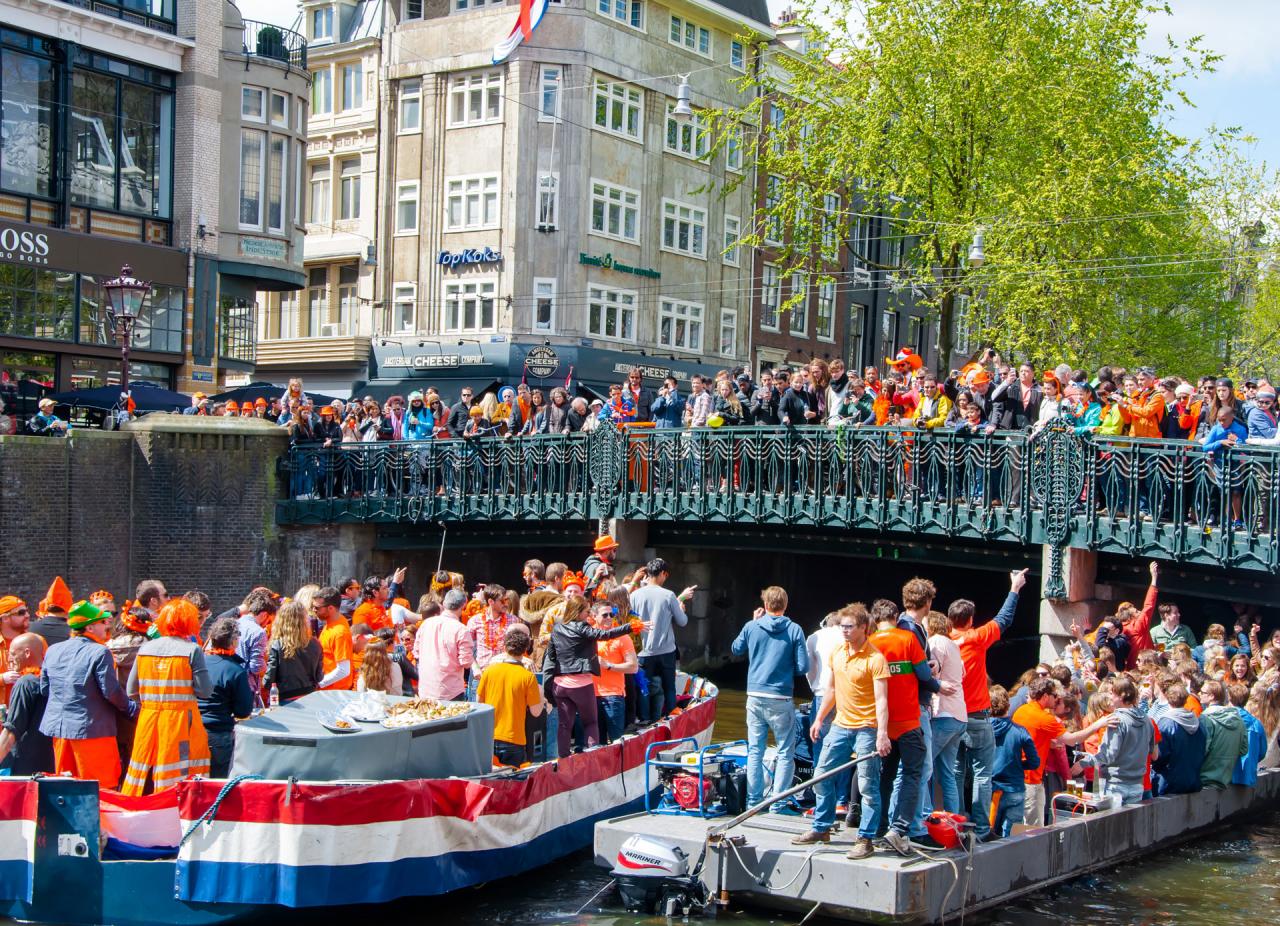
Koningsdag, the Netherlands’ vibrant national holiday, is a day of orange-hued revelry, flea markets, and street parties that showcases the country’s rich cultural heritage and deep-rooted love for its monarchy.
This beloved holiday, celebrated annually on April 27th, commemorates the birthday of King Willem-Alexander and has evolved into a day of national unity and joyous festivities that draw both locals and tourists alike.
Historical Context
Koningsdag, literally “King’s Day,” is a national holiday in the Netherlands celebrated on April 27th to mark the birthday of the Dutch king. The holiday has its origins in 1885, when it was established to celebrate the birthday of King Willem III.
Over time, Koningsdag has evolved into a day of national celebration and festivities. It is a day when the Dutch people come together to celebrate their monarchy, their culture, and their country.
Cultural Traditions
Flea Markets and Vrijmarkten
One of the most popular Koningsdag traditions is the flea markets and vrijmarkten (free markets) that are held throughout the country. These markets are a great place to find unique and interesting items, as well as to haggle over prices.
Music Performances and Street Parties, Koningsdag
Koningsdag is also a day for music and dancing. Street parties are held in cities and towns throughout the Netherlands, and many people dress up in orange clothing to celebrate the holiday.
Orange Clothing and Decorations
Orange is the national color of the Netherlands, and it is everywhere on Koningsdag. People wear orange clothing, decorate their homes and businesses with orange flags and bunting, and even eat orange food.
Economic Impact

Koningsdag has a significant economic impact on the Netherlands. The holiday is a major boost for tourism, retail sales, and other industries.
In 2019, Koningsdag generated an estimated €700 million in revenue for the Dutch economy. This includes spending on food, drinks, clothing, and other goods and services.
Social Significance: Koningsdag
Koningsdag is a day for the Dutch people to come together and celebrate their country. The holiday fosters community spirit and national pride.
On Koningsdag, the Dutch people put aside their differences and come together to celebrate their shared heritage and culture.
International Recognition
Koningsdag is not only celebrated in the Netherlands. The holiday has also been adopted or adapted by other countries, including Canada, Australia, and New Zealand.
In Canada, Koningsdag is known as King’s Day and is celebrated on the same day as in the Netherlands. In Australia, Koningsdag is known as Dutch King’s Day and is celebrated on the first Saturday in March.
Future Trends

Koningsdag is a holiday that is constantly evolving. As the world changes, so too do the ways in which Koningsdag is celebrated.
One trend that is likely to continue is the increasing use of technology on Koningsdag. In recent years, there has been a growing number of Koningsdag apps and websites that help people find events, plan their day, and share their experiences.
Conclusive Thoughts
Koningsdag serves as a vibrant tapestry woven with the threads of history, culture, and community spirit. It is a day when the Netherlands comes together to celebrate its national identity, embrace its traditions, and revel in the spirit of unity.
As the holiday continues to evolve, it is likely to incorporate new elements while preserving its cherished traditions, ensuring its enduring place in the hearts of the Dutch people and beyond.
Q&A
When is Koningsdag celebrated?
Koningsdag is celebrated annually on April 27th.
What is the significance of the color orange on Koningsdag?
Orange is the color of the Dutch royal family, the House of Orange-Nassau, and is proudly displayed on Koningsdag.
What are some popular activities during Koningsdag?
Koningsdag is marked by flea markets, music performances, street parties, and the wearing of orange clothing and decorations.